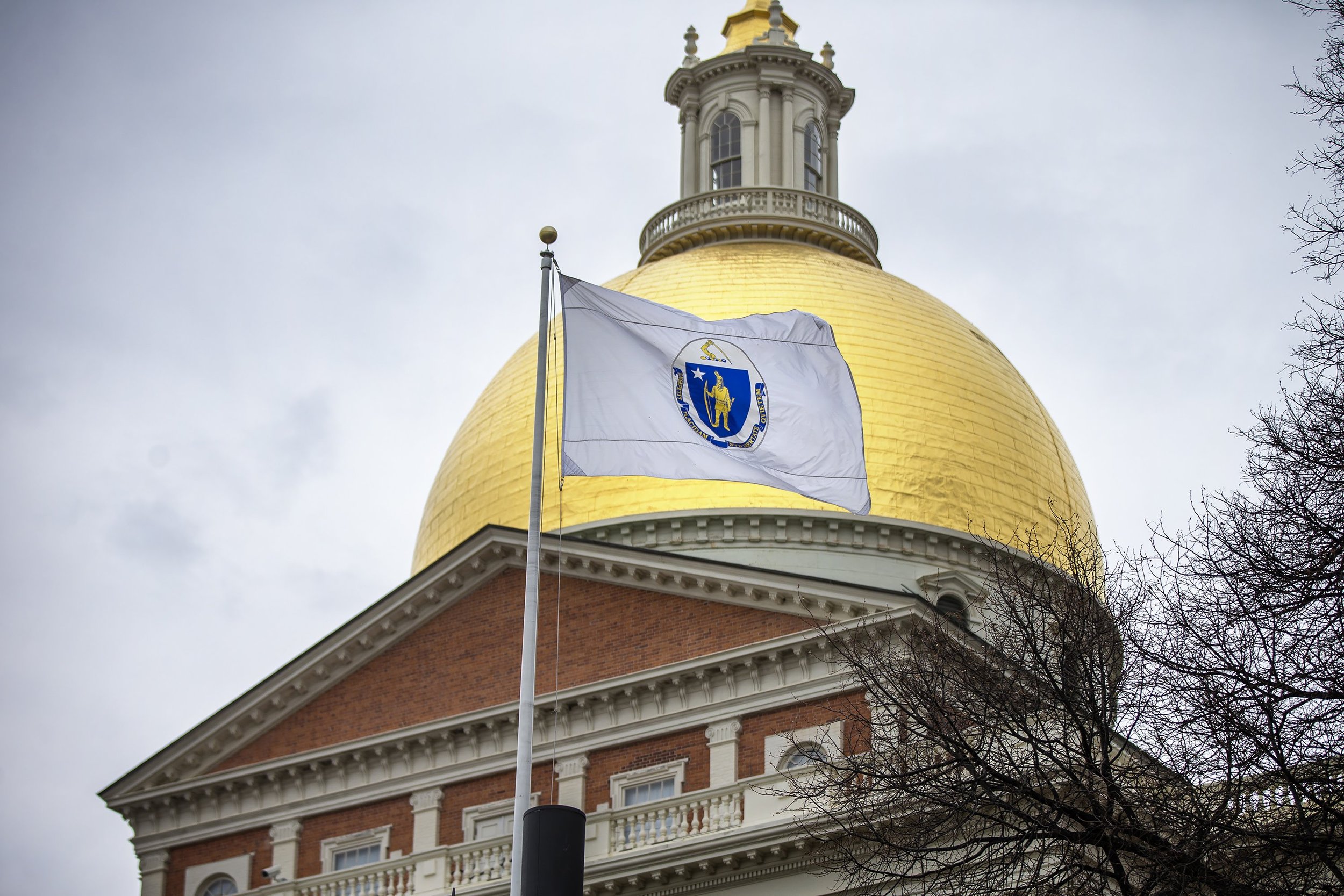A special commission, that includes representatives from Mashpee, Aquinnah and Herring Pond, voted unanimously last month to recommend that the state seal and motto for Massachusetts be completely replaced. The commission is co-chaired by Chairman Brian Weeden and also includes tribal member and Executive Director on the Commission of Indian Affair John “Jim” Peters.
The current state seal, which dates back to 1898, depicts a Native American holding a bow and arrow and standing beneath an arm holding a sword — representing the colonial military leader Myles Standish — poised as if to strike. A motto in Latin unfurls around him, which is generally translated as: “By the sword we seek peace, but peace only under liberty.”
“It’s a reminder of the oppression and the genocide that was caused to the Indigenous people,” said Brian Weeden. “As we know, here in the commonwealth is where the English and the Pilgrims landed, first on Cape Cod out here in Wampanoag territory, and then further inland to Plymouth, which is also Wampanoag territory.”
“After the English got here... a lot of the Indigenous people out here in the Northeast were kind of the guinea pigs. They were able to assimilate us, forced Christianity upon us, and by the time they had worked their way out west, were more strategic in organizing reservations and tribes and taking away their food rights and their sovereignty and so on.”
Before the final, unanimous vote, Cheryl Andrews-Maltais, the chairwoman of the Wampanoag Tribe of Gay Head (Aquinnah), said that while she preferred an entirely new seal and motto, she was also open to revamping them.
“My personal opinion is, I can live with certain elements, because I’m also a realist,” Andrews-Maltais said. “[I understand] that while we, the indigenous people, are the ones that have been harmed and impacted by the negative imagery, or the interpretation of that imagery… we are a subset of the members, or the citizens, of the Commonwealth of Massachusetts.”
After backing the creation of a brand-new seal and motto, the commission’s members weighed whether to solicit input from the public first or to create new options and then offer them for public feedback.
While no vote was taken, there seemed to be a clear preference for going to the public at the outset of the process.
“Soliciting inputs is really helpful, because that then allows you to kind of sift through those and help distill,” said commissioner Micah Whitson, a branding expert with experience in flag redesign.
Chairman Weeden added "Hopefully we can have a lot more community gatherings or a listening session and take this trip on the road to various communities here in the commonwealth so that we can hear everyone's voice, and everyone that wants to be part of this change in this time in our state's history is being heard and being considered throughout the process."



